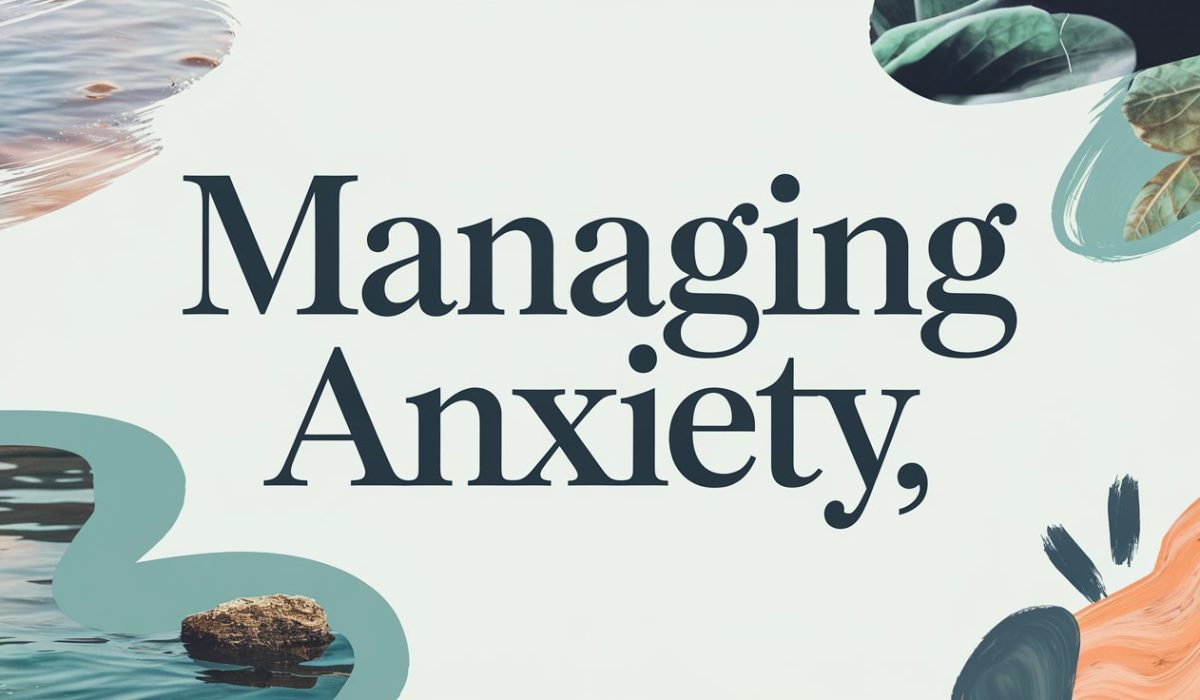Managing Anxiety: Effective Strategies for Relief
Feeling anxious is something many people experience. In fact, it can make you worry, feel restless, and even cause physical symptoms like a fast heartbeat. While it’s normal to feel anxious sometimes, long-lasting anxiety can be tough to handle. Therefore, here are some easy tips to help you manage anxiety and feel more at ease.
1. Know Your Triggers
First, try to find out what makes you anxious. For example, keep a small journal and write down when you feel anxious and what was happening at that moment. This way, you can identify triggers and understand your anxiety better.
2. Practice Mindfulness and Meditation
Mindfulness means focusing on the present moment. As a result, it can help calm your mind. For this reason, try spending a few minutes each day just breathing deeply or practicing mindfulness meditation. Ultimately, this can help reduce anxiety and make you feel more relaxed.
3. Exercise Regularly
Getting active is a great way to fight anxiety. For instance, aim to exercise for about 30 minutes most days. Activities like walking, jogging, or dancing can lift your mood and help you feel better overall.
4. Create a Routine
Having a daily routine can help you feel more in control. Therefore, set regular times for meals, work, relaxation, and sleep. Knowing what to expect can significantly reduce feelings of anxiety.
5. Cut Down on Caffeine and Sugar
Moreover, too much caffeine and sugar can increase anxiety levels. Consequently, try drinking less coffee and sugary drinks. Instead, opt for herbal tea or water and focus on healthy foods to help improve your mental health.
6. Try Deep Breathing
Deep breathing can help you relax quickly. For this reason, use this simple method:
- Breathe in through your nose for 4 seconds.
- Hold your breath for 7 seconds.
- Breathe out slowly through your mouth for 8 seconds.
Do this a few times when you feel anxious to feel immediate relief.
7. Talk to Someone
Sharing your feelings with someone you trust can help ease anxiety. Therefore, reach out to friends or family members and let them know how you’re feeling. Having support is important for your mental well-being.
8. Limit Screen Time
Watching too much news or spending excessive time on social media can increase anxiety. Consequently, set limits on how much time you spend online. In addition, take breaks and focus on activities you enjoy, such as reading or going for a walk.
9. Get Good Sleep
Not getting enough sleep can make anxiety worse. In order to improve your sleep, aim for 7-9 hours of quality sleep each night. Additionally, create a calming bedtime routine and a cozy sleep environment to help you rest better.
10. Seek Professional Help
If your anxiety feels too much to handle or stops you from living your life, consider talking to a mental health professional. For example, therapy can provide helpful tools for managing anxiety, and sometimes medication may be an option.
Conclusion
Managing anxiety is a process that takes time and patience. By implementing these simple tips, you can find effective ways to cope with anxiety and improve your mental well-being. Remember, it’s okay to ask for help and to take care of your mental health. So, start with small steps today to feel calmer and happier.
